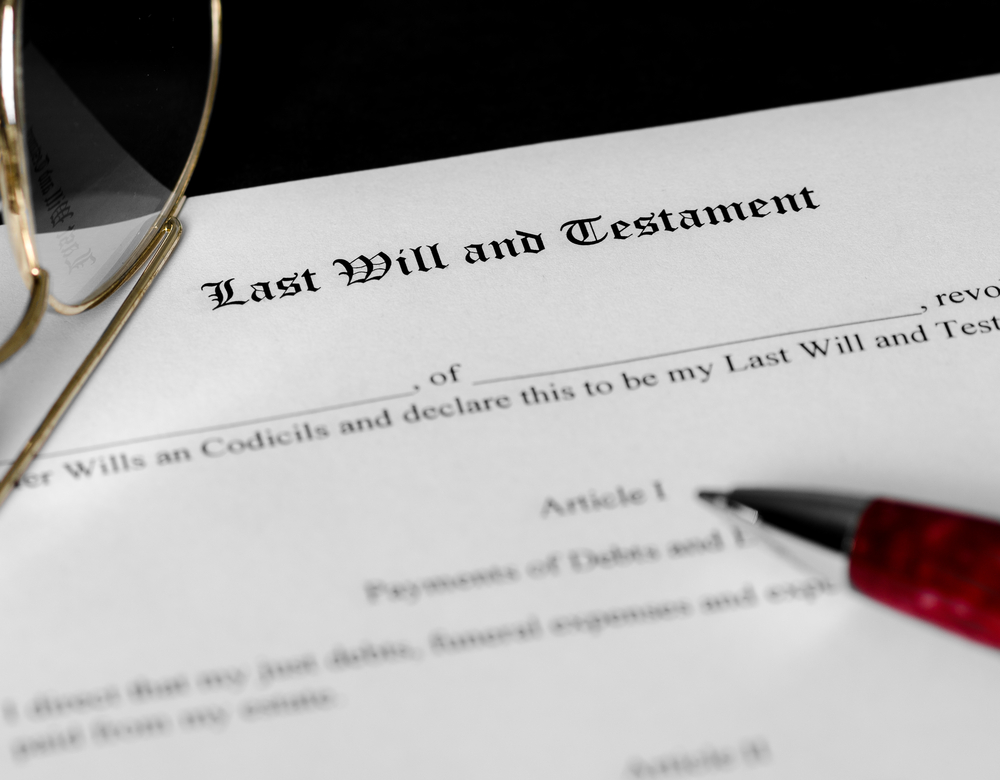When we pass away, our final Will and testament is the legal document that dictates how our assets will be distributed amongst family members and those we love.
An executor of a Will plays an important role in overseeing this process and is responsible for ensuring it’s carried out in accordance with the wishes of Will’s author.
In this blog, we will provide a guide to understanding the role of an executor and how to navigate the probate process with the help of our Wills and estates lawyers.
What is an executor of a Will?
An executor is a person who is named in a Will to manage the estate of a deceased person. They may be a person closely related to the deceased, or they can be anyone from a close friend to a lawyer. If you are looking to nominate someone as an executor of your Will, choosing someone you can trust will carry out the task as you intend is always a good idea.
If you have been named as an executor of a Will, familiarising yourself with the role and the responsibility that comes with it can be very helpful.
Let’s take a closer look.
What does an executor of a Will do?
An executor’s primary role is to ensure that the deceased’s wishes are carried out after they die. Therefore, an executor’s role comes into play after the death of the testator. The actions of the executor are governed by the Administration Act 1903 (WA) and the Trustees Act 1962 (WA) and take place during the probate (the process of legally acknowledging the authenticity of the Will) period and last until all assets are distributed to the beneficiaries. Scroll down for more details on the probate process.
Some of the main duties that an executor may be required to fulfill are:
- Apply for a death certificate and distribute it to the relevant authorities
- Contact the beneficiaries named in the Will
- Protect and preserve the person’s assets, this can be property
- Carry on, or execute tasks associated with an existing business owned by the deceased
- Pay any outstanding debts or bills and lodging tax returns
- Set up trusts and administer them on behalf of beneficiaries
- Ensure any real estate is dealt with, either by transferring ownership, preparing properties for sale
- Deal appropriately with any legal risks or challenges that arise
- Distribute assets to the beneficiaries according to the Will
Can an executor of a Will be a beneficiary?
Yes, they can be and they often are.
For example, the most common scenario is a couple making mirror wills on the same terms. More often than not, the spouses will appoint each other as executors, and they will also be the sole beneficiary of their respective estates. It is also common when adult children are named as executors of their deceased parent’s Will and are also one of the beneficiaries.
The risks of choosing a beneficiary as your executor
There are potential drawbacks to naming an executor who is also a beneficiary within the Will. For example, if the executor is also a beneficiary, they may be tempted to distribute the assets in a way that is more beneficial to themselves than to the other beneficiaries.
This can give rise to legal challenges from other beneficiaries who may see their share of the estate being diminished. It’s important to take family dynamics into account when choosing an executor. Often, it can be best to remove any risk of conflict and choose a neutral third party who you know will do the job without any personal prejudices.
What is probate and what does the process include?
Probate is the legal procedure that involves verifying the authenticity of a deceased person’s Will.
To obtain a Grant of Probate, the designated executor must file an application with the Supreme Court in the state or territory where the deceased held assets. If the deceased did not leave a valid Will, they are considered to have died intestate, and a surviving family member must instead apply for a Grant of Letters of Administration.
After the court authenticates the deceased person’s Will, they will issue a sealed Grant of Probate that attaches a copy of the Will. The executor can then initiate the estate administration process.
Who can be nominated as an executor?
In Western Australia, you do not need any specific qualifications to be an executor. Any close family member or friend may carry out the job. That being said, many people choose to have a solicitor or a professional trustee take over the administration of an estate. Given the responsibility involved, this is a common way to ensure that a Will is executed properly.
I’ve been named as an executor but don’t want to do it
If you’ve been named as an executor, or have previously agreed and don’t have the capacity to carry out the tasks required, or simply prefer not to, you have the option to renounce the role and allow the public trustee or professional trustee to obtain the Grant of Probate. You may also choose to obtain the Grant of Probate, and then delegate the administration of the estate to a solicitor who may carry out the tasks on your behalf. Often Wills have a substitute executor named in case the nominated executor cannot or is unwilling to fulfil the role.
The importance of estate planning
Understanding the legal complexities involved with estate planning, and the probate process can be both time-consuming and stressful. Whether you’re planning your estate or carrying out your duties as an executor, seeking legal advice can help make life easier for everyone.
A well-planned estate can help to ensure that your assets are distributed according to your wishes and can help to avoid disputes among family members. A well-planned estate also helps the nominated executor whose job will become easier once their responsibilities begin. To find out more about estate planning and why it’s important, read our blog here.
Speak to Solomon Hollett Lawyers
Our team at Solomon Hollett Lawyers can help to create an estate plan that is tailored to your specific needs and can ensure that your wishes are carried out after your death. Whether you’re planning your estate, are still curious about what an executor of a Will does, or have been named as an executor of a Will, our team is ready to assist.
If you have been named in a Will as an executor, our team at Solomon Hollett Lawyers can also assist you with obtaining a Grant of Probate, advising you on your duties and obligations as executor and in administering the estate.
Contact us for a free 15-minute consultation today.









